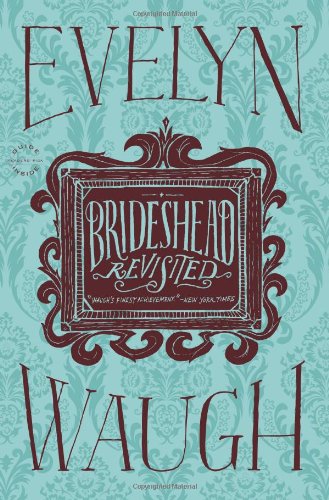About this item
The wellsprings of desire and the impediments to love come brilliantly into focus in Evelyn Waugh's masterpiece-a novel that immerses us in the glittering and seductive world of English aristocracy in the waning days of the empire. Through the story of Charles Ryder's entanglement with the Flytes, a great Catholic family, Evelyn Waugh charts the passing of the privileged world he knew in his own youth and vividly recalls the sensuous pleasures denied him by wartime austerities. At once romantic, sensuous, comic, and somber, Brideshead Revisited transcends Waugh's early satiric explorations and reveals him to be an elegiac, lyrical novelist of the utmost feeling and lucidity.
About the Author
Evelyn Waugh
Evelyn Waugh's father Arthur was a noted editor and publisher. His only sibling Alec also became a writer of note. In fact, his book "The Loom of Youth" (1917) a novel about his old boarding school Sherborne caused Evelyn to be expelled from there and placed at Lancing College. He said of his time there, " ... the whole of English education when I was brought up was to produce prose writers; it was all we were taught, really. " He went on to Hertford College, Oxford, where he read History. When asked if he took up any sports there he quipped, "I drank for Hertford. " In 1924 Waugh left Oxford without taking his degree. After inglorious stints as a school teacher (he was dismissed for trying to seduce a school matron and/or inebriation) , an apprentice cabinet maker and journalist, he wrote and had published his first novel, "Decline and Fall" in 1928. In 1928 he married Evelyn Gardiner. She proved unfaithful, and the marriage ended in divorce in 1930. Waugh would derive parts of "A Handful of Dust" from this unhappy time. His second marriage to Audrey Herbert lasted the rest of his life and begat seven children. It was during this time that he converted to Catholicism. During the thirties Waugh produced one gem after another. From this decade come: "Vile Bodies" (1930) , "Black Mischief" (1932) , the incomparable "A Handful of Dust" (1934) and "Scoop" (1938) . After the Second World War he published what is for many his masterpiece, "Brideshead Revisited," in which his Catholicism took centre stage. "The Loved One" a scathing satire of the American death industry followed in 1947. After publishing his "Sword of Honour Trilogy" about his experiences in World War II - "Men at Arms" (1952) , "Officers and Gentlemen" (1955) , "Unconditional Surrender" (1961) - his career was seen to be on the wane. In fact, "Basil Seal Rides Again" (1963) - his last published novel - received little critical or commercial attention. Evelyn Waugh, considered by many to be the greatest satirical novelist of his day, died on 10 April 1966 at the age of 62.See
More about
Evelyn Waugh »
Report incorrect product information.


